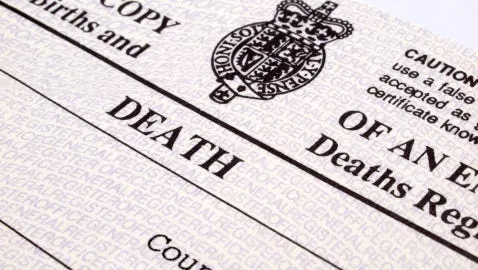Death certificates are the official records of the passing of an individual. They are documents that confirm the time, place, and cause of death. They serve as evidence of the death, essential for insurance claims, inheritance, and many other legal processes. As a result, it is imperative that these certificates are accurate and trustworthy. But what if they’re not? What if the information recorded on them is deliberately altered for financial gain or other motives?
The reality is that death certificate falsification is a widespread problem, and it’s a conspiracy that needs to be exposed. This type of fraud is more common than many people realize, and it has far-reaching implications that extend beyond the individual case. In this article, we will examine the various motives behind death certificate falsification, the impact it has on society, and the measures being taken to prevent this crime.
One of the most common reasons for death certificate falsification is to collect life insurance benefits. In such cases, the individual responsible for falsifying the certificate changes the cause of death to a covered condition, such as heart attack or cancer, to trigger the payment of life insurance benefits. This type of fraud is prevalent in developing countries where insurance policies are less regulated, and the claims process is less stringent. However, it is not limited to these countries and has been reported in many developed nations as well.
Another reason for death certificate falsification is to hide the cause of death to protect the reputation of the deceased. For example, if the person died due to drug overdose, the certificate may be altered to state the cause of death as heart attack. This protects the deceased’s reputation and prevents their loved ones from facing the stigma associated with drug abuse.
Additionally, death certificate falsification is also used to facilitate immigration fraud. In this case, the cause of death is altered to a non-contagious condition, such as heart attack, to help the surviving spouse obtain a visa or immigration status. This type of fraud is particularly prevalent in countries where immigration policies are strict, and the application process is time-consuming.
The consequences of death certificate falsification are far-reaching and can have significant impacts on society. The most obvious is the denial of insurance benefits to the rightful beneficiaries. The fraudsters often keep the insurance benefits for themselves, leaving the family of the deceased without the financial support they need.
Moreover, falsifying death certificates can also affect the accuracy of medical and health data. This can lead to the misidentification of disease trends and patterns, making it difficult for healthcare providers to provide the appropriate treatment and care.
Finally, death certificate falsification also undermines the credibility of the legal system. When death certificates are altered, it raises questions about the authenticity of other legal documents and undermines the public’s trust in the government’s ability to protect its citizens.
To prevent death certificate falsification, governments around the world are taking a number of measures. For example, many countries now require death certificates to be verified by a medical examiner or coroner before they are issued. This ensures that the cause of death recorded is accurate and provides a layer of protection against fraud.
In addition, governments are also implementing stricter penalties for those who falsify death certificates. This includes fines, imprisonment, and the revocation of professional licenses for healthcare providers involved in the fraud.
In conclusion, death certificate falsification is a widespread problem that needs to be addressed. It has far-reaching consequences for society, including the denial of insurance benefits, the misidentification of medical trends, and the undermining of the legal system. Governments around the world are taking steps to prevent this crime, but more needs to be done.












